Spotlight
A selection of stories from across the Federation

Romania
Roma Women in Romania Face Old and New Threats to Abortion Care Access
Roma women and girls face multiple barriers to abortion care in Romania. Far more needs to be done to protect their rights, says Roxana-Magdalena Oprea of E-Romnja.
Most Popular This Week
Romania

Roma Women in Romania Face Old and New Threats to Abortion Care Access
For Roma women and girls in Romania, the struggle to access abortion care brings them into contact with horrific levels of racism and discrimination, hardw
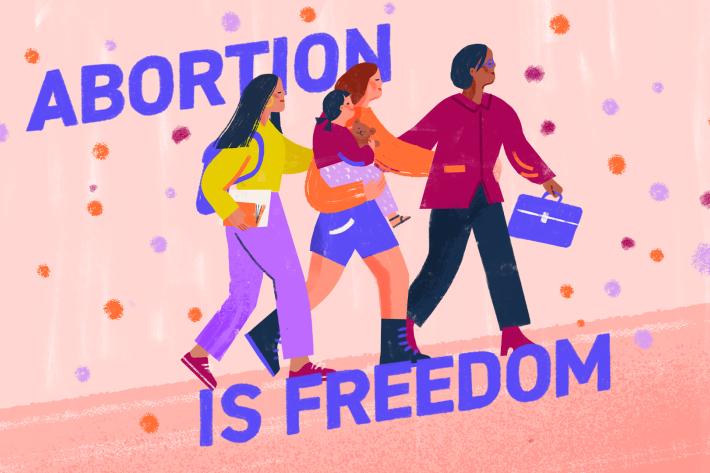
Croatia: Obstacles to abortion care make access virtually non-existent
Hitting the road in the desperate search for abortion care
Romania
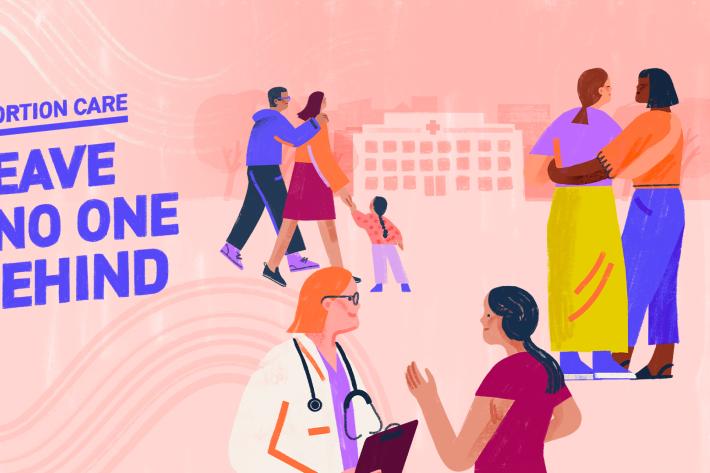
High costs and broken health system freeze many out of abortion care in Romania
On paper, abortion care is legal up to 14 weeks in Romania – though only free in emergencies – and should be provided by all hospitals with obstetrics and gynaecology departments.
Germany
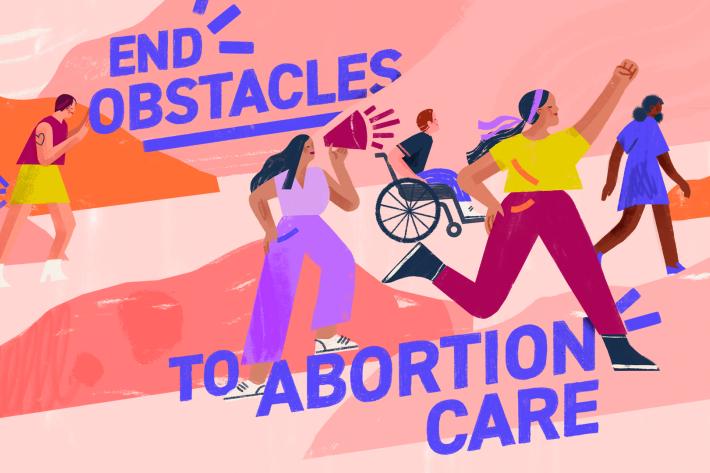
Germany's archaic abortion law creates huge burden for people needing care
For a country long reputed to have one of the more progressive healthcare systems in Europe, Germany’s law on abortion – a health issue affecting millions of people – remains firm

Sexuality education keeps young people safe from harm
Comprehensive sexuality and relationship education is a vital prevention tool in the fight

Belgium’s consent law is clear: Absence of no doesn’t mean yes
‘Rape isn’t always something that happens when you are dragged into an alleyway’, says Heleen Heysse, Policy Officer at

Legislating the path to consent: Spain's Yes Means Yes law
‘Everyone has the right to live without violence. You can have sex without love, but always with care’.
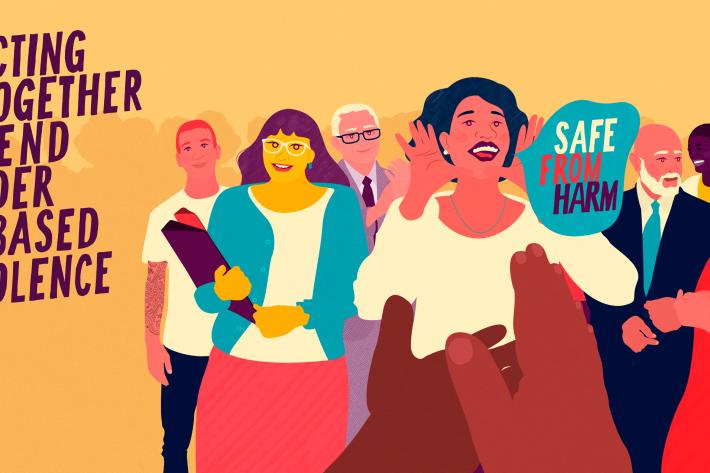
Anything less than yes is rape: the campaign for a consent-based rape law in Sweden
The absence of a ‘no’ is not an implicit yes. This is the overarching principle of a long-fought Swedish ‘consent law’ aimed at disman
Filter our stories by:
- Albanian Center for Population and Development
- Associação Para o Planeamento da Família
- Bulgarian Family Planning and Sexual Health Association
- Health Education and Research Association (HERA) - North Macedonia
- Institute for Population and Development
- Mouvement Français pour le Planning Familial
- Polish Women's Strike
- (-) Pro Familia - Germany
- SECS – Contraception and Sexual Education Society, Romania
- Serbian Association for Sexual and Reproductive Rights

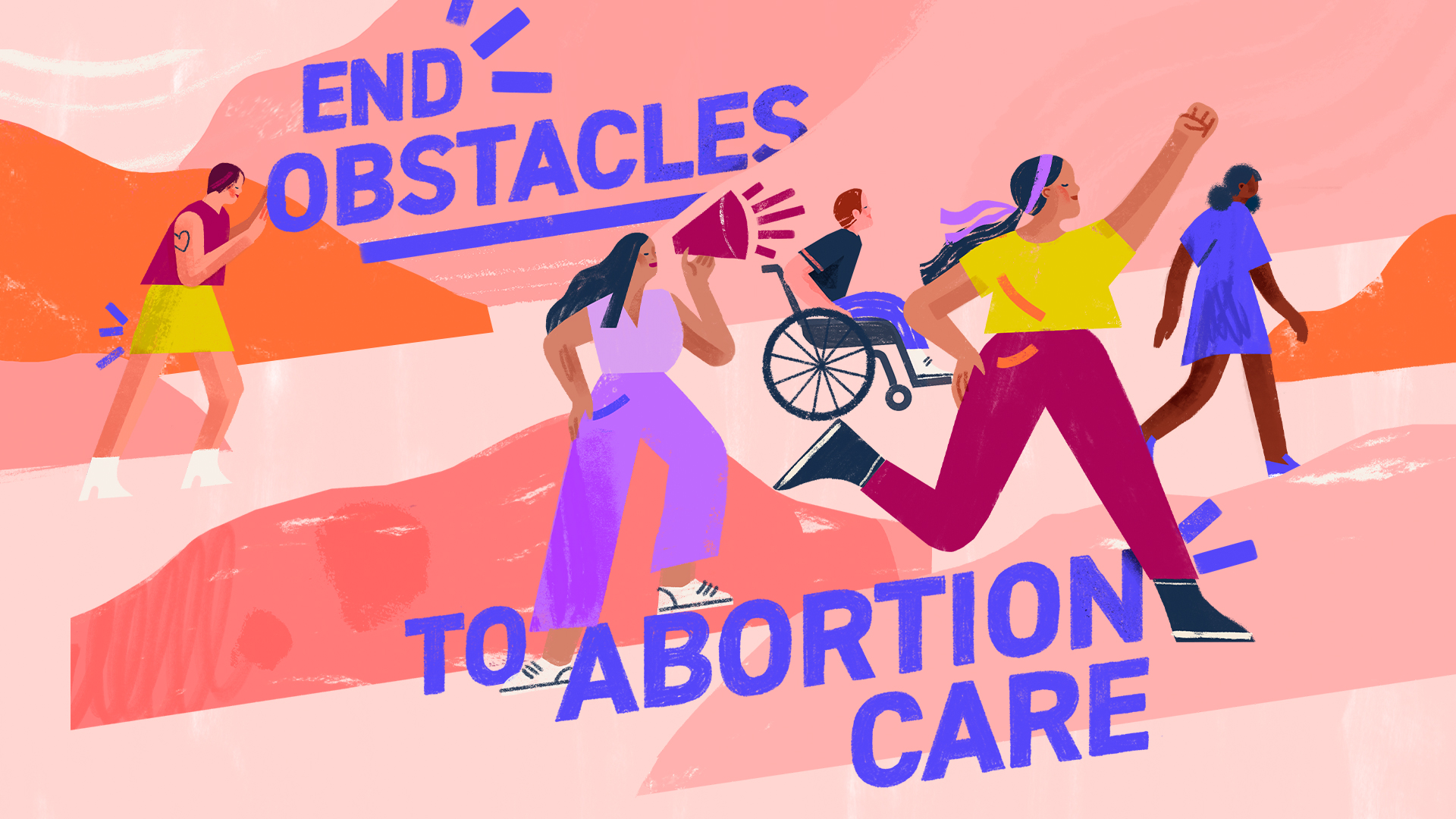
| 25 September 2024
Germany's archaic abortion law creates huge burden for people needing care
For a country long reputed to have one of the more progressive healthcare systems in Europe, Germany’s law on abortion – a health issue affecting millions of people – remains firmly stuck in the past. “The law has negative impacts, and [these] are not accidental side-effects that need to be adjusted – they’re intentional,” says Stephanie Schlitt, board member of Pro Familia, an SRHR counselling and advocacy organisation and IPPF’s German Member Association. “By compelling women to do certain things, the law enforces abortion stigma.” Germany’s archaic law has a long and messy past, in which the trampling of women’s rights to reproductive justice has been a common thread. Abortion has been criminalised since 1871 and remains punishable with prison sentences for those obtaining and providing abortions (though prosecutions are rare). Exceptions are made up to 12 weeks of pregnancy under strict conditions, or where there is a medical necessity, or in cases of rape. The state’s longstanding treatment of abortion as a criminal rather than health issue has devastating repercussions. For people needing abortions, strict legislation makes accessing care a fraught process, involving high costs, complex paperwork, fear of criminalisation, and stigma. For doctors, the legal red tape, threat of prosecution, and growing harassment by anti-rights campaigners create “a huge disincentive for the provision of care”, Stephanie says. “What’s happening here simply isn’t good enough, because it goes completely against the needs of the people concerned and those who want to support them professionally – doctors and counsellors,” Stephanie says. “We can’t be surprised if, as a result of this law, [abortion] healthcare provision is difficult. Of course it will be – it’s geared towards making it difficult.” Outdated laws crush women’s rights “Some of the barriers flow directly from the law as it’s framed, and some flow from the practice that results from that law,” Stephanie explains. Firstly, people seeking abortion care must undergo mandatory counselling at state-certified centres or online, and receive a certificate to present to their gynaecologist. Following counselling, there is a mandatory and medically unnecessary three-day waiting period – a delay that can affect treatment options for such a time-critical procedure and exacerbate stress. Making counselling a legal requirement creates difficult conditions for counsellor and client, Stephanie explains. Women “feel under pressure to justify themselves” during an already stressful period, while for counsellors, these conditions are “a huge burden because counselling should only happen on a voluntary basis.” Mandatory counselling and waiting periods contravene World Health Organization (WHO) advice on abortion care, and Germany is one of the few EU countries to impose both. “The point is that this law creates hurdles to good healthcare and actually makes the whole experience much more difficult than it needs to be,” Stephanie says. “An abortion needn’t be so emotionally, financially and socially burdensome.”

| 27 September 2024
Germany's archaic abortion law creates huge burden for people needing care
For a country long reputed to have one of the more progressive healthcare systems in Europe, Germany’s law on abortion – a health issue affecting millions of people – remains firmly stuck in the past. “The law has negative impacts, and [these] are not accidental side-effects that need to be adjusted – they’re intentional,” says Stephanie Schlitt, board member of Pro Familia, an SRHR counselling and advocacy organisation and IPPF’s German Member Association. “By compelling women to do certain things, the law enforces abortion stigma.” Germany’s archaic law has a long and messy past, in which the trampling of women’s rights to reproductive justice has been a common thread. Abortion has been criminalised since 1871 and remains punishable with prison sentences for those obtaining and providing abortions (though prosecutions are rare). Exceptions are made up to 12 weeks of pregnancy under strict conditions, or where there is a medical necessity, or in cases of rape. The state’s longstanding treatment of abortion as a criminal rather than health issue has devastating repercussions. For people needing abortions, strict legislation makes accessing care a fraught process, involving high costs, complex paperwork, fear of criminalisation, and stigma. For doctors, the legal red tape, threat of prosecution, and growing harassment by anti-rights campaigners create “a huge disincentive for the provision of care”, Stephanie says. “What’s happening here simply isn’t good enough, because it goes completely against the needs of the people concerned and those who want to support them professionally – doctors and counsellors,” Stephanie says. “We can’t be surprised if, as a result of this law, [abortion] healthcare provision is difficult. Of course it will be – it’s geared towards making it difficult.” Outdated laws crush women’s rights “Some of the barriers flow directly from the law as it’s framed, and some flow from the practice that results from that law,” Stephanie explains. Firstly, people seeking abortion care must undergo mandatory counselling at state-certified centres or online, and receive a certificate to present to their gynaecologist. Following counselling, there is a mandatory and medically unnecessary three-day waiting period – a delay that can affect treatment options for such a time-critical procedure and exacerbate stress. Making counselling a legal requirement creates difficult conditions for counsellor and client, Stephanie explains. Women “feel under pressure to justify themselves” during an already stressful period, while for counsellors, these conditions are “a huge burden because counselling should only happen on a voluntary basis.” Mandatory counselling and waiting periods contravene World Health Organization (WHO) advice on abortion care, and Germany is one of the few EU countries to impose both. “The point is that this law creates hurdles to good healthcare and actually makes the whole experience much more difficult than it needs to be,” Stephanie says. “An abortion needn’t be so emotionally, financially and socially burdensome.”

| 25 September 2024
Germany's archaic abortion law creates huge burden for people needing care
For a country long reputed to have one of the more progressive healthcare systems in Europe, Germany’s law on abortion – a health issue affecting millions of people – remains firmly stuck in the past. “The law has negative impacts, and [these] are not accidental side-effects that need to be adjusted – they’re intentional,” says Stephanie Schlitt, board member of Pro Familia, an SRHR counselling and advocacy organisation and IPPF’s German Member Association. “By compelling women to do certain things, the law enforces abortion stigma.” Germany’s archaic law has a long and messy past, in which the trampling of women’s rights to reproductive justice has been a common thread. Abortion has been criminalised since 1871 and remains punishable with prison sentences for those obtaining and providing abortions (though prosecutions are rare). Exceptions are made up to 12 weeks of pregnancy under strict conditions, or where there is a medical necessity, or in cases of rape. The state’s longstanding treatment of abortion as a criminal rather than health issue has devastating repercussions. For people needing abortions, strict legislation makes accessing care a fraught process, involving high costs, complex paperwork, fear of criminalisation, and stigma. For doctors, the legal red tape, threat of prosecution, and growing harassment by anti-rights campaigners create “a huge disincentive for the provision of care”, Stephanie says. “What’s happening here simply isn’t good enough, because it goes completely against the needs of the people concerned and those who want to support them professionally – doctors and counsellors,” Stephanie says. “We can’t be surprised if, as a result of this law, [abortion] healthcare provision is difficult. Of course it will be – it’s geared towards making it difficult.” Outdated laws crush women’s rights “Some of the barriers flow directly from the law as it’s framed, and some flow from the practice that results from that law,” Stephanie explains. Firstly, people seeking abortion care must undergo mandatory counselling at state-certified centres or online, and receive a certificate to present to their gynaecologist. Following counselling, there is a mandatory and medically unnecessary three-day waiting period – a delay that can affect treatment options for such a time-critical procedure and exacerbate stress. Making counselling a legal requirement creates difficult conditions for counsellor and client, Stephanie explains. Women “feel under pressure to justify themselves” during an already stressful period, while for counsellors, these conditions are “a huge burden because counselling should only happen on a voluntary basis.” Mandatory counselling and waiting periods contravene World Health Organization (WHO) advice on abortion care, and Germany is one of the few EU countries to impose both. “The point is that this law creates hurdles to good healthcare and actually makes the whole experience much more difficult than it needs to be,” Stephanie says. “An abortion needn’t be so emotionally, financially and socially burdensome.”

| 27 September 2024
Germany's archaic abortion law creates huge burden for people needing care
For a country long reputed to have one of the more progressive healthcare systems in Europe, Germany’s law on abortion – a health issue affecting millions of people – remains firmly stuck in the past. “The law has negative impacts, and [these] are not accidental side-effects that need to be adjusted – they’re intentional,” says Stephanie Schlitt, board member of Pro Familia, an SRHR counselling and advocacy organisation and IPPF’s German Member Association. “By compelling women to do certain things, the law enforces abortion stigma.” Germany’s archaic law has a long and messy past, in which the trampling of women’s rights to reproductive justice has been a common thread. Abortion has been criminalised since 1871 and remains punishable with prison sentences for those obtaining and providing abortions (though prosecutions are rare). Exceptions are made up to 12 weeks of pregnancy under strict conditions, or where there is a medical necessity, or in cases of rape. The state’s longstanding treatment of abortion as a criminal rather than health issue has devastating repercussions. For people needing abortions, strict legislation makes accessing care a fraught process, involving high costs, complex paperwork, fear of criminalisation, and stigma. For doctors, the legal red tape, threat of prosecution, and growing harassment by anti-rights campaigners create “a huge disincentive for the provision of care”, Stephanie says. “What’s happening here simply isn’t good enough, because it goes completely against the needs of the people concerned and those who want to support them professionally – doctors and counsellors,” Stephanie says. “We can’t be surprised if, as a result of this law, [abortion] healthcare provision is difficult. Of course it will be – it’s geared towards making it difficult.” Outdated laws crush women’s rights “Some of the barriers flow directly from the law as it’s framed, and some flow from the practice that results from that law,” Stephanie explains. Firstly, people seeking abortion care must undergo mandatory counselling at state-certified centres or online, and receive a certificate to present to their gynaecologist. Following counselling, there is a mandatory and medically unnecessary three-day waiting period – a delay that can affect treatment options for such a time-critical procedure and exacerbate stress. Making counselling a legal requirement creates difficult conditions for counsellor and client, Stephanie explains. Women “feel under pressure to justify themselves” during an already stressful period, while for counsellors, these conditions are “a huge burden because counselling should only happen on a voluntary basis.” Mandatory counselling and waiting periods contravene World Health Organization (WHO) advice on abortion care, and Germany is one of the few EU countries to impose both. “The point is that this law creates hurdles to good healthcare and actually makes the whole experience much more difficult than it needs to be,” Stephanie says. “An abortion needn’t be so emotionally, financially and socially burdensome.”









